If you have recently been diagnosed with cancer, knowing what to expect in the near future and making plans can be a stressful experience. Instead, you may simply wish to focus on the here and now and wonder how you’re going to cope with your diagnosis. After being given a diagnosis, it’s natural to feel anxious and even depressed at the thought of what is to come which will, of course, start to have an impact on your mental state. In this guide, we’re going to give you some tips on how to cope with your diagnosis and empower you to feel more in control of your wellbeing.
A Guide To Living With Cancer
Be aware of the facts
When you have been diagnosed with cancer, it can feel as though you are completely out of control of your own body. To combat this, aim to obtain as much information as possible about your diagnosis – from the most basic of facts to getting answers to some of the key questions you have been bottling up. These may include the likes of:
- What type of cancer do I have?
- Where is the cancer located in the body?
- Can my cancer be treated and if so, what are the treatment options?
- What should I anticipate during treatment?
- What are the potential side effects of each type of treatment?
- Is there anything I can do to prevent the cancer from returning?
- Is there a high likelihood that my family members could also be at risk of cancer?
In the early stages of cancer, it can be difficult to take all the information on board yourself, therefore, it would be wise to bring along a close friend or family member with you at your next appointment in case any vital information is missed concerning your diagnosis.
However, it is usually your own choice as to how much you wish to know about your condition. Some people prefer to be kept in the loop and informed about all the facts, while others opt to remain in the dark and have all the information communicated to your doctor. Inform your health specialists what you would prefer and would make the situation as stress-free as possible for you.
Keep communication flowing with loved ones
Being told you have cancer is extremely hard-hitting and you may want to simply close yourself off to the world, including friends and family to come to terms with the diagnosis alone. Yet, there has never been a more crucial time in your life when you need support to cope in such a difficult situation.
You may be fearful of burdening them with your emotions or feel as though you’re being overprotected against certain situations, such as bad news or illnesses that are making you feel powerless, however, it’s important to remember that your loved ones want to do what’s best for you and you help pull through some of your most challenging moments.
Anticipate possible physical changes
As your cancer develops, you’ll likely experience physical changes including the likes of hair loss, fatigue and weight gain, so it would be best to prepare for what is to come as early as possible to limit shock and further distress.
If you’re feeling brave, ask your doctor about what you should expect to happen to your body in the coming weeks and months. Members of cancer groups are also a valuable form of support if you wish to speak to like-minded people who are going through the exact same situation as you, they can give you first-hand advice on what to expect physically and how you can manage symptoms on a day-to-day basis.
Continue with daily activities
If possible, it would be in your best interest to aim to live life as you normally would and continue with your usual daily activities. There may be some instances when you need to adjust normal tasks and habits if you’re struggling – but don’t take this as a failure. It’s simply putting yourself first and taking care of your health and wellbeing.
Instead of planning activities for the weeks and months ahead in such uncertain times, it would be best to plan on a more relaxed day-by-day basis. There may be days when you simply won’t feel like doing anything, but that’s perfectly normal given your diagnosis, so try not to feel as though you’re letting others down.
Get enough rest
If you’re undergoing chemotherapy or radiation treatment, there will be days when you’ll feel extreme fatigue and other side effects such as nausea and pain, therefore, it would be wise to get as much sleep as possible each night to recover. Understand that your body is running with less power than you may be used to, so you need enough sleep to be able to function well the following day. If you’re too tired to carry out the activities you had planned – listen to your body. It’s telling you to relax and take it easy.
Maintain a healthy lifestyle
Making the effort to maintain a healthy lifestyle should give you an energy boost and hopefully, make you feel better both physically and mentally.
Choose to eat a balanced diet to ensure you’re getting the relevant nutrients and vitamins and perhaps even a spot of exercise won’t do you any harm if you feel up to it. Researchers have discovered that terminal cancer patients who exercised regularly not only found it easier to deal with their diagnosis but also lived much longer than expected.
Let family and friends help you
While you may not want to burden others when you are unable to manage everyday tasks, you shouldn’t be afraid to reach out to loved ones when you need a helping hand. Learn to accept help when you need it – whether that be assisting you with household chores, transportation, or picking the kids up from school.
It would also be a good idea to inform your family and friends to also accept help whenever they are struggling. Your cancer diagnosis not only affects you but can impact the lives of those closest to you and sometimes, they also need someone to lean on during the most difficult moments and prevents burn-out.
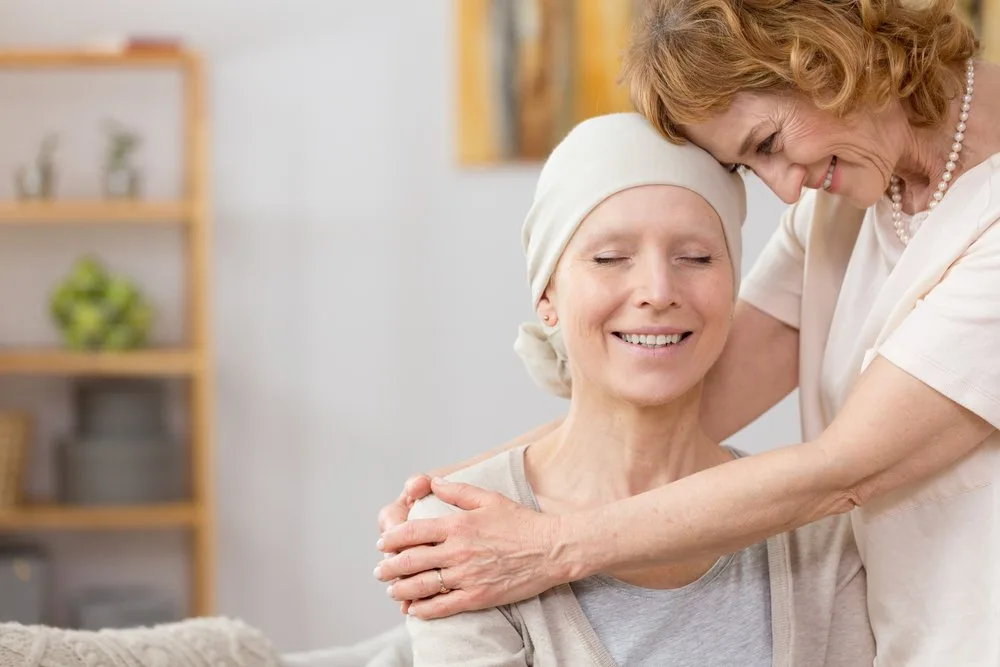
Practice relaxation techniques
When you’re feeling particularly anxious or stressed over-thinking about your cancer diagnosis, there are ways you can keep yourself calm to help take your mind off it. Here are some relaxation techniques to bear in mind:
Mindfulness
Mindfulness is the practice of being entirely present in the moment and allowing yourself to delve deep into your mind. By sitting quietly and focusing on the now instead of on the past or the future, you’ll ultimately be standing back from your thoughts and feelings. This will allow you to evaluate those which are causing you the most grief and should be discarded. Gradually, you’ll learn to train your mind to recognize when thoughts are taking over and causing you to feel out of control.
Yoga
Yoga is an ancient form of exercise. It focuses on strength, flexibility, and breathing to improve both your physical and mental wellbeing. Cancer patients can benefit from this activity, as it can transport the mind away from depressing, stressful and obtrusive thoughts. Some types of yoga can be more physically demanding than others. That said, it would be wise to talk to your GP beforehand.

How to Improve Your Self-Confidence when Living with Cancer
Get a hair transplant
Hair loss is a common side effect of cancer treatments (such as chemotherapy, radiotherapy, or hormonal). If you are having surgery in an area of the body where the hair is present (such as the head, as a result of a brain tumor), you’ll need to be shaved in this area to carry out the procedure. The good news is that it will grow back gradually.
In very rare cases, some types of treatment can cause permanent loss. This can cause a significant loss of confidence – especially for those who take pride in their appearance. In this case, you could either purchase a wig or opt to have a hair transplant from hshairclinic.co.uk. This will help you regain confidence in your appearance once again and enable you to live life to the full.
Seek counselling

If you’re finding it difficult to cope with your thoughts and worries, why not seek counselling? This will help you to come to terms with your diagnosis and understand your feelings. Many counselors can be found through cancer support groups.
They are trained to deal with cancer patients who need someone to understand exactly what they’re going through. Having this form of contact each week or month will enable you to feel less lonely. It will also prepare you mentally for the rocky road ahead.
Be considerate to yourself
Just remember how far you have come throughout your cancer journey. Don’t forget to give yourself praise for being brave and strong. There’s nothing wrong with a bit of self-compassion now and again. It’s important to give yourself credit for what you have faced. Simply learn to understand and accept when you may be struggling without indulging in self-punishment.
Aim to get rid of that negative voice in your head that is constantly putting you down. Talk to yourself as though you were talking to a friend. In this case, you’ll be able to better handle whatever is thrown at you and see your confidence soar.
Celebrate the small things
When life is looking bleak and you’re in fear of what is to come, it’s important to step back and simply appreciate the small things in life. This should help improve your mood and cut out negative thought patterns. Try writing down a few positive things from the day such as what you’re grateful for.
This can also include compliments you received or something you have achieved to give you that much-needed confidence boost.
Give yourself time to adapt
Living with cancer is a challenging and draining experience for anyone. Therefore it’s important to take some ‘me time’ and do something you enjoy and makes you feel great about yourself. With so much to take in concerning, it’s natural to feel overwhelmed and wish to seek some form of escape. Just take a few hours out of each day to spend on yourself. This is what you need to build your confidence again and allow you to live life normally.
If you have discovered that you have cancer, we hope this guide has given you some helpful advice. Use it to manage your condition on a daily basis and cope when life gets challenging. We wish you a speedy recovery.


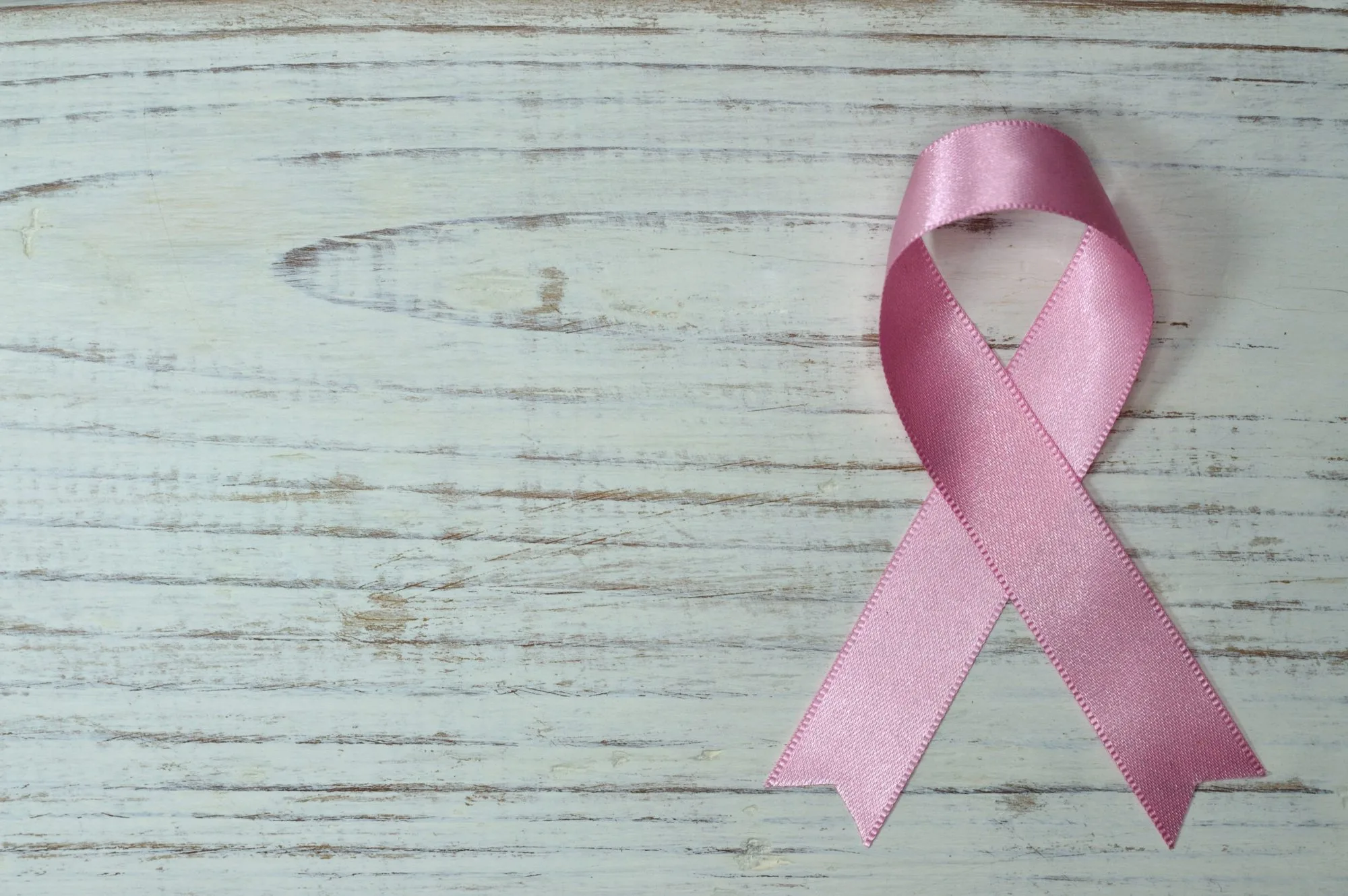
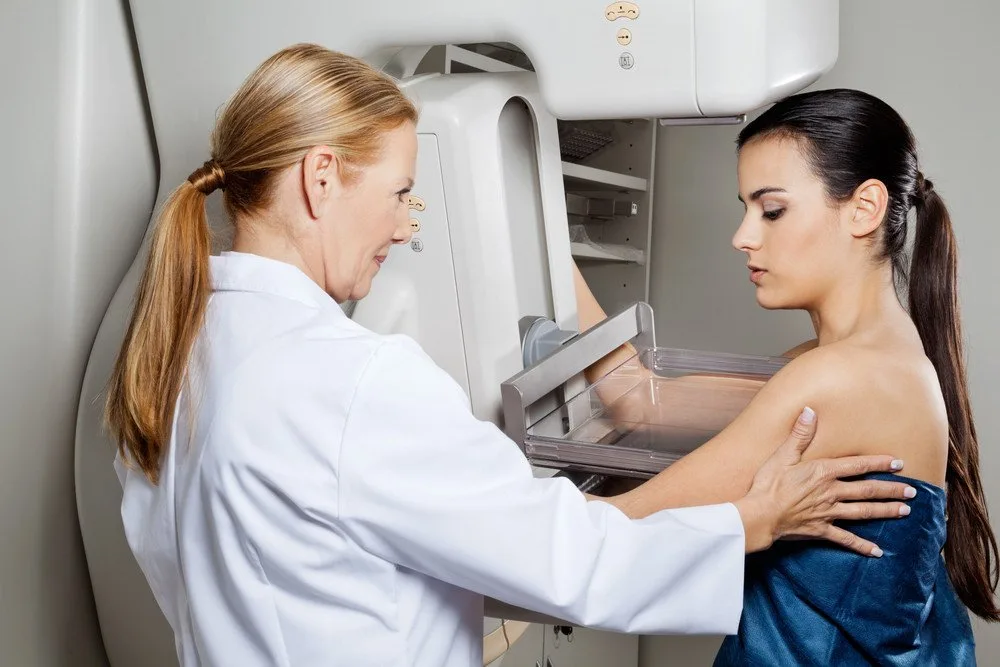
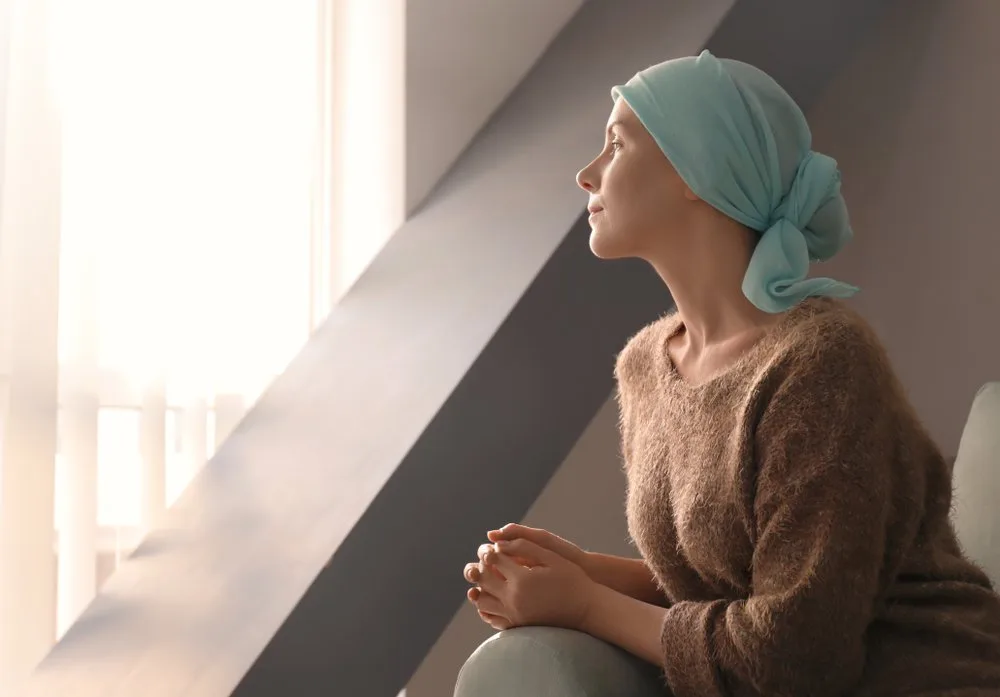
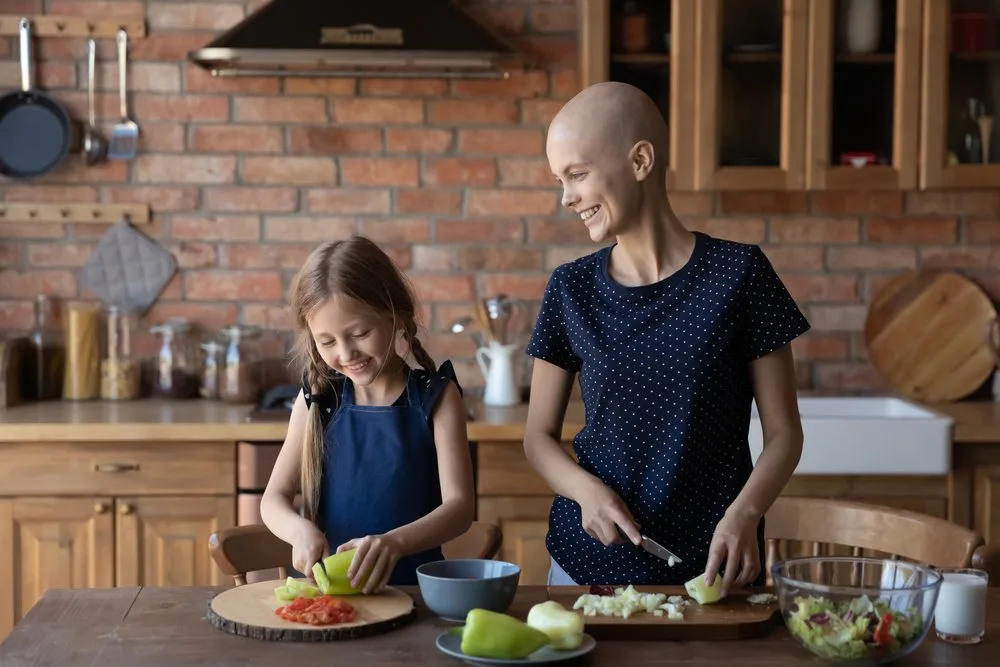
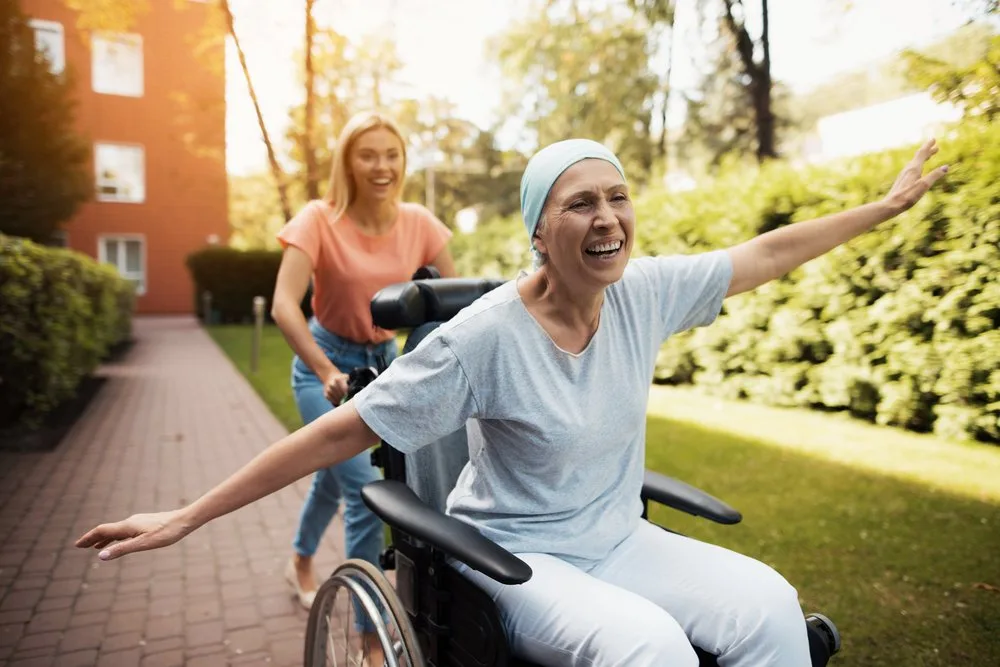


![women [longevity live]](https://longevitylive.com/wp-content/uploads/2020/01/photo-of-women-walking-down-the-street-1116984-100x100.jpg)










